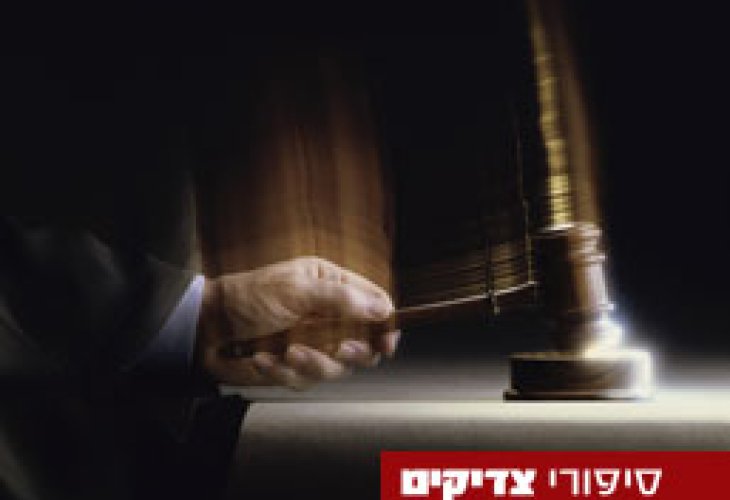Personal Stories
A Hidden Tzaddik Stands Up for Jewish Prayer
When an archbishop tried to ban a sacred prayer, a hidden tzaddik rose up in defense
- |Updated

In the city of Lvov, the Great Rabbinical Court gathered under the leadership of the great Torah scholar, Rabbi Chaim Rappaport. All the city’s leaders were present, and the atmosphere was heavy with worry and sadness.
A terrible decree had been issued. The archbishop of the Christian church, Mikolski, had ordered that Jews were no longer allowed to recite the prayer “Aleinu L’Shabeach.” Not only that, he commanded that it be torn out of every Jewish prayer book during the week and never spoken again.
But how could Jews give up this sacred prayer? “Aleinu L’Shabeach” was composed by none other than Yehoshua bin Nun (Joshua), when the Jewish people were about to enter the Land of Israel after forty years in the desert. It thanks Hashem for choosing the Jewish people and expresses our hope that the whole world will one day recognize Hashem’s greatness.
This prayer is said three times a day. On Rosh Hashanah, it’s recited during the most important part of the service. To stop saying it? Unthinkable.
Under Rabbi Rappaport’s guidance, the court decided together: we will not stop saying “Aleinu.” We will continue as we always have, since the days of Yehoshua. We will pray and fast, and with Hashem’s help, we will be saved.
The people returned home with mixed feelings, proud of their unity but anxious about what would happen next.
While the Jews poured out their hearts in prayer, a simple Jew named Chaim Israel appeared at the archbishop’s home. Chaim was a potter by trade, but unknown to most, he was one of the hidden 36 righteous people in the world, a lamed-vav tzaddik. He had received a message from the Baal Shem Tov (the founder of the Hasidic movement) urging him to act.
Chaim Israel left his workshop and, risking his life, made his way into the archbishop’s palace. No one knows how he got past the guards. He entered the courtyard where Mikolski was sitting comfortably, enjoying food and drink. When the archbishop saw the poor Jew standing before him, he was enraged.
But before he could speak, Chaim Israel pointed at him and said in a strong voice, “I am warning you, cancel the decree against the ‘Aleinu L’Shabeach’ prayer immediately! If not, you will face bitter consequences. You will be punished from Heaven. I’ve given you a warning!”
The archbishop jumped up and shouted, “Are you crazy? Who are you to tell me what to do? And how did you get in here? Out! Leave now!”
Chaim Israel remained calm. “Mr. Mikolski, I am warning you one last time: if you don’t cancel this evil decree, you will suffer terribly. The danger is right beneath your feet.”
Before Mikolski could react, Chaim Israel vanished just as suddenly as he had appeared.
The following Sunday, the Christian day of prayer, Mikolski stood before a large crowd in church. After the prayers, he gave a passionate speech, calling on his people to rise up against the Jews. “This week,” he cried, “we will strike a blow against the ones we hate!”
He raised his arms, stepped forward and suddenly fell from the high platform. Chaos broke out as people screamed and ran to help. Mikolski was badly hurt. Groaning in pain, he was carried home.
Lying in bed, he cried out, “Why did this happen to me?” Then he remembered the poor Jew who had warned him. Panic set in.
“It’s that same Jew,” he whispered, “the one who warned Archbishop Dembowski years ago about his decree to burn Jewish holy books. He ignored the warning and died the next day of a heart attack. I saw it with my own eyes. And now, the same has happened to me!”
Terrified, Mikolski called his head priest and ordered him, “Go to the Jewish community right away and tell them the decree is canceled. They can continue saying ‘Aleinu.’ I won’t interfere anymore. What a mysterious and frightening people they are.”
News of the canceled decree spread quickly. The Jewish community of Lvov rejoiced, giving thanks to Hashem for answering their prayers and for sending them a hidden tzaddik just when they needed him most.

